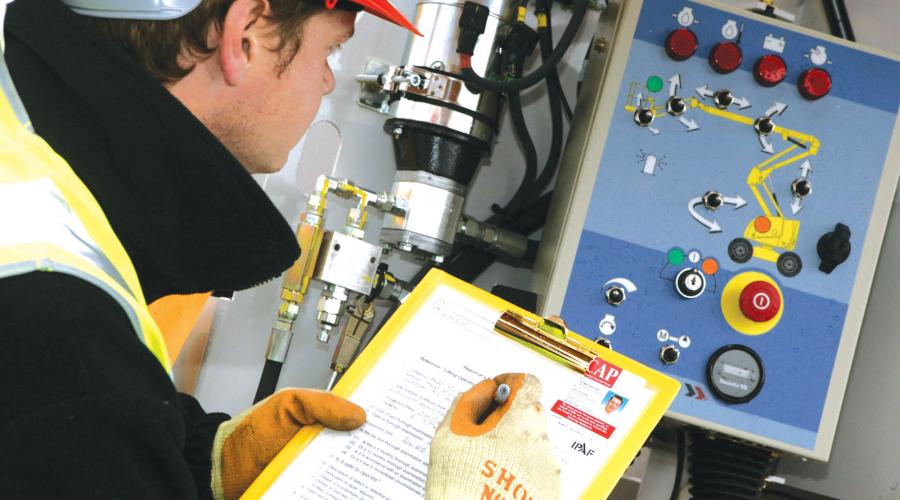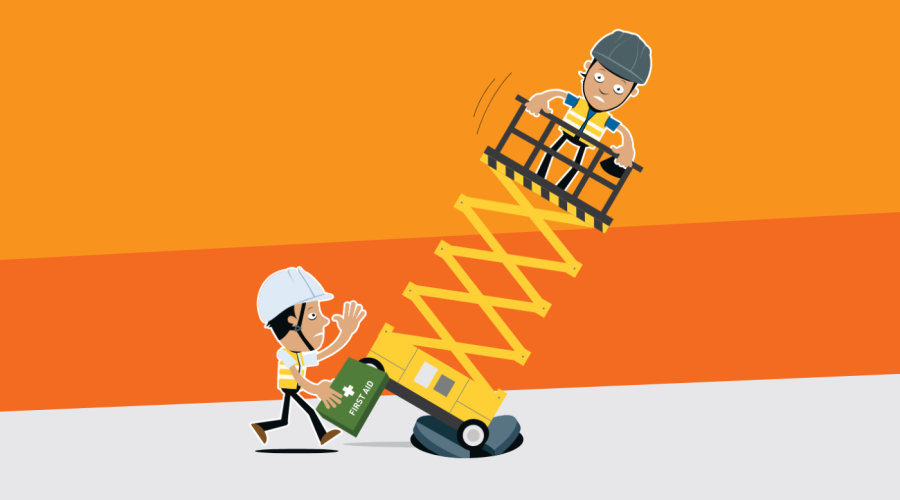IPAF sets out draft MEWP service technician guidance

Who is qualified to maintain Mobile Elevating Work Platforms (MEWPs) is one of the questions that has been vexing the powered access industry for some time, now the International Powered Access Federation (IPAF) has taken the first steps towards developing internationally recognized qualifications for MEWP technicians.
IPAF has taken a leadership role with partnering industry associations in the development of new guidelines outlining three different levels of MEWP service technician, setting out expected skill-sets and competencies for those employed to inspect and service MEWPs, previously known in North America as Aerial Work Platforms (AWPs). The first draft is now ready to be shared with the wider access industry, with a view to consulting on and reviewing the new framework and the terminology employed.
The draft guidance, set to be issued as a voluntary best practice guide to operators and rental companies, proposes three distinct levels of service technician: Technician – being a mechanic with mechanical training or experience but not necessarily aerial-specific; an MEWP/Aerial Technician, who is trained in the safety aspects of maintaining aerials; and MEWP/Aerial Master Technician, denoting specific qualifications for the appropriate machine and system, and authorized to perform all aerial maintenance including non-standard procedures (with manufacturer consultation). The new framework also recognizes that some organizations may have an entry-level Apprentice Technician for those with no experience.
Tony Groat, IPAF’s North America Manager, says of the new guidelines: “IPAF has been working on the development of industry guidance to address the requirements to become a qualified MEWP service technician. We initiated this more than a year ago as a by-product of discussion around standards development, when it was suggested that the training standard should address training for service technicians.
“We hope once the new framework is finalized it will help companies outline to their employees the expected competencies for each type of technician and ensure that inspection and maintenance tasks are being carried out by individuals with the appropriate level of knowledge and experience. We also hope it will allow the industry to identify skills and knowledge gaps, identify and develop new training courses, and ultimately to assist technicians to skill up and to attain the next level of competency in the framework.”
Tim Whiteman, CEO and Managing Director of IPAF, adds: “The industry long has struggled to define appropriate language that may be adopted within industry standards to address service technician training and the industry presently relies quite heavily on ‘on the job training’. It was felt that there is a need for greater industry guidance towards standardization, which prompted this project.
“IPAF began with small group of members to look into this, and this group has opted to begin with a short, concise document to increase industry buy-in and discussion. This initial document has been introduced to a broader industry audience for closer vetting, with the intent to offer publicly after final review. The plan is to allow the industry to further review for approximately a year after initial publication, to identify any need to amend or expand the guidance.
“Our group now feels it is time to expand the consultation and maximize the industry voices that are heard in the draft development; we hope that all industry stakeholders will now engage with the outline guidance and help take it forward into something that can provide a platform for industry-recognized training and qualifications for MEWP technicians to be developed.”
